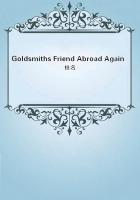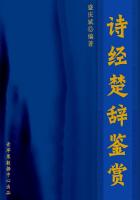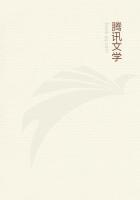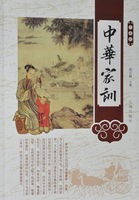If, however, there be some one person, or more than one, although not enough to make up the full complement of a state, whose virtue is so pre-eminent that the virtues or the political capacity of all the rest admit of no comparison with his or theirs, he or they can be no longer regarded as part of a state; for justice will not be done to the superior, if he is reckoned only as the equal of those who are so far inferior to him in virtue and in political capacity. Such an one may truly be deemed a God among men. Hence we see that legislation is necessarily concerned only with those who are equal in birth and in capacity; and that for men of pre-eminent virtue there is no law- they are themselves a law. Any would be ridiculous who attempted to make laws for them: they would probably retort what, in the fable of Antisthenes, the lions said to the hares, when in the council of the beasts the latter began haranguing and claiming equality for all. And for this reason democratic states have instituted ostracism; equality is above all things their aim, and therefore they ostracized and banished from the city for a time those who seemed to predominate too much through their wealth, or the number of their friends, or through any other political influence.
Mythology tells us that the Argonauts left Heracles behind for a similar reason; the ship Argo would not take him because she feared that he would have been too much for the rest of the crew. Wherefore those who denounce tyranny and blame the counsel which Periander gave to Thrasybulus cannot be held altogether just in their censure.
The story is that Periander, when the herald was sent to ask counsel of him, said nothing, but only cut off the tallest ears of corn till he had brought the field to a level. The herald did not know the meaning of the action, but came and reported what he had seen to Thrasybulus, who understood that he was to cut off the principal men in the state; and this is a policy not only expedient for tyrants or in practice confined to them, but equally necessary in oligarchies and democracies. Ostracism is a measure of the same kind, which acts by disabling and banishing the most prominent citizens. Great powers do the same to whole cities and nations, as the Athenians did to the Samians, Chians, and Lesbians; no sooner had they obtained a firm grasp of the empire, than they humbled their allies contrary to treaty; and the Persian king has repeatedly crushed the Medes, Babylonians, and other nations, when their spirit has been stirred by the recollection of their former greatness.
The problem is a universal one, and equally concerns all forms of government, true as well as false; for, although perverted forms with a view to their own interests may adopt this policy, those which seek the common interest do so likewise. The same thing may be observed in the arts and sciences; for the painter will not allow the figure to have a foot which, however beautiful, is not in proportion, nor will the shipbuilder allow the stem or any other part of the vessel to be unduly large, any more than the chorus-master will allow any one who sings louder or better than all the rest to sing in the choir. Monarchs, too, may practice compulsion and still live in harmony with their cities, if their own government is for the interest of the state. Hence where there is an acknowledged superiority the argument in favor of ostracism is based upon a kind of political justice. It would certainly be better that the legislator should from the first so order his state as to have no need of such a remedy. But if the need arises, the next best thing is that he should endeavor to correct the evil by this or some similar measure.
The principle, however, has not been fairly applied in states; for, instead of looking to the good of their own constitution, they have used ostracism for factious purposes. It is true that under perverted forms of government, and from their special point of view, such a measure is just and expedient, but it is also clear that it is not absolutely just. In the perfect state there would be great doubts about the use of it, not when applied to excess in strength, wealth, popularity, or the like, but when used against some one who is pre-eminent in virtue- what is to be done with him? Mankind will not say that such an one is to be expelled and exiled; on the other hand, he ought not to be a subject- that would be as if mankind should claim to rule over Zeus, dividing his offices among them. The only alternative is that all should joyfully obey such a ruler, according to what seems to be the order of nature, and that men like him should be kings in their state for life.















